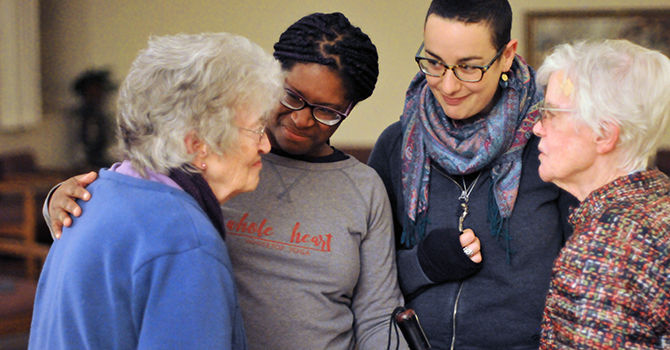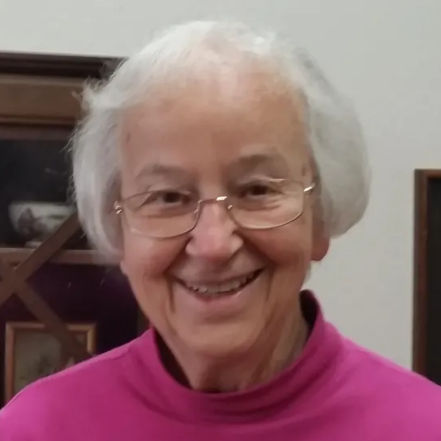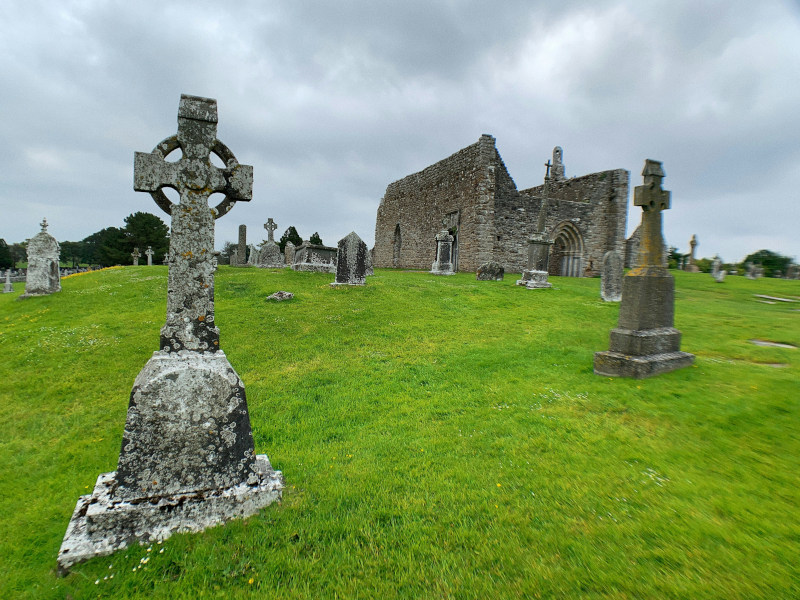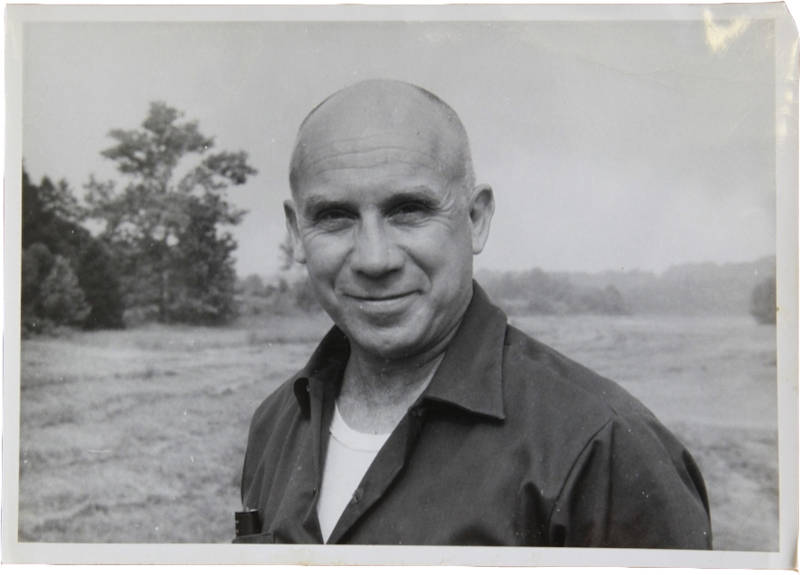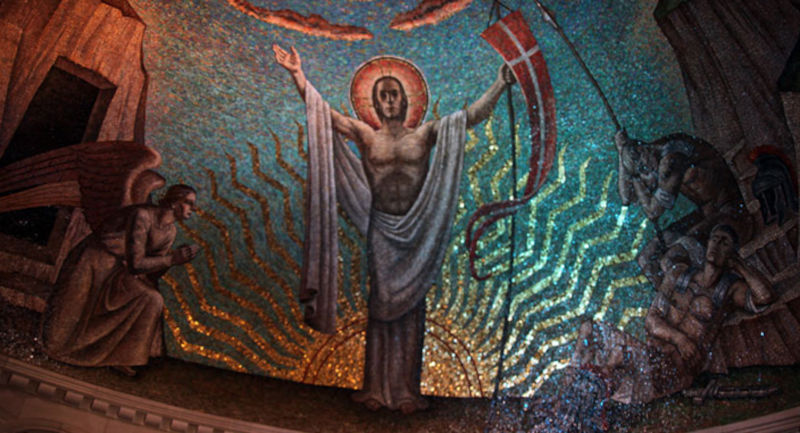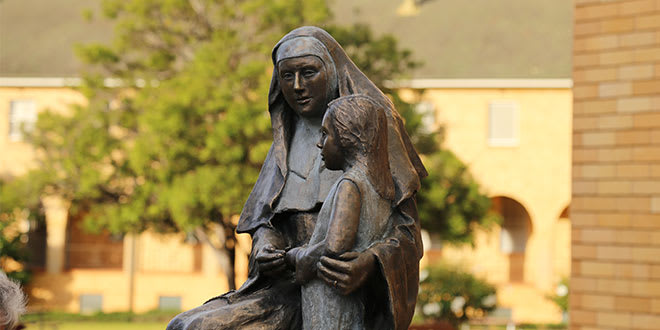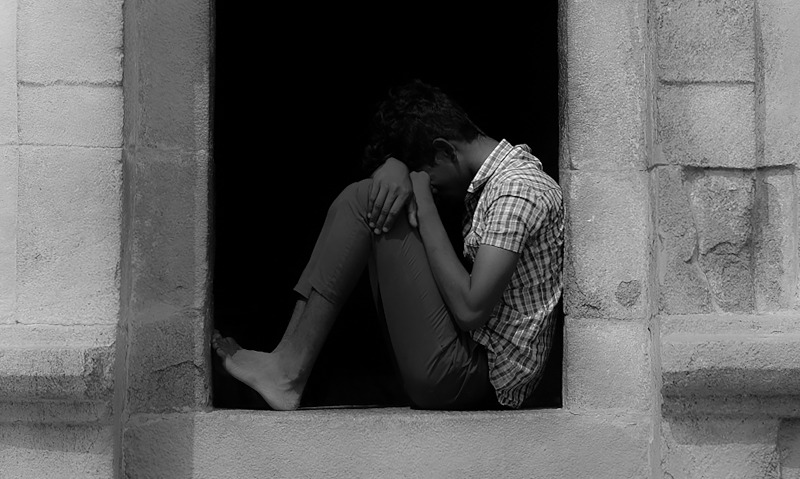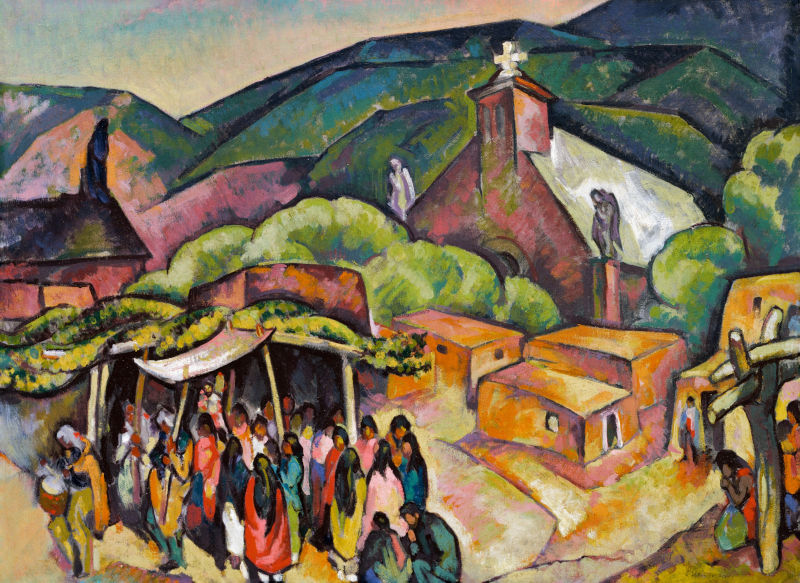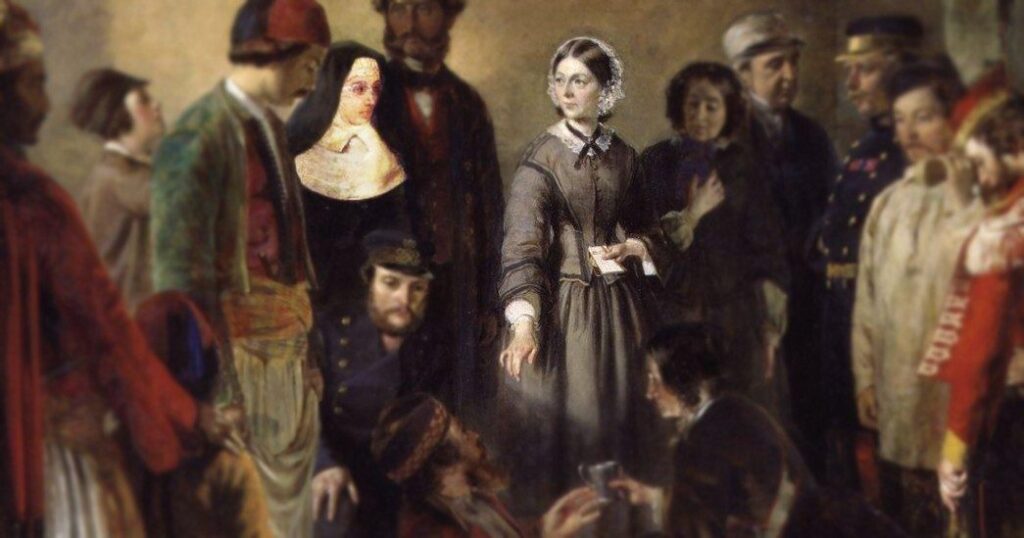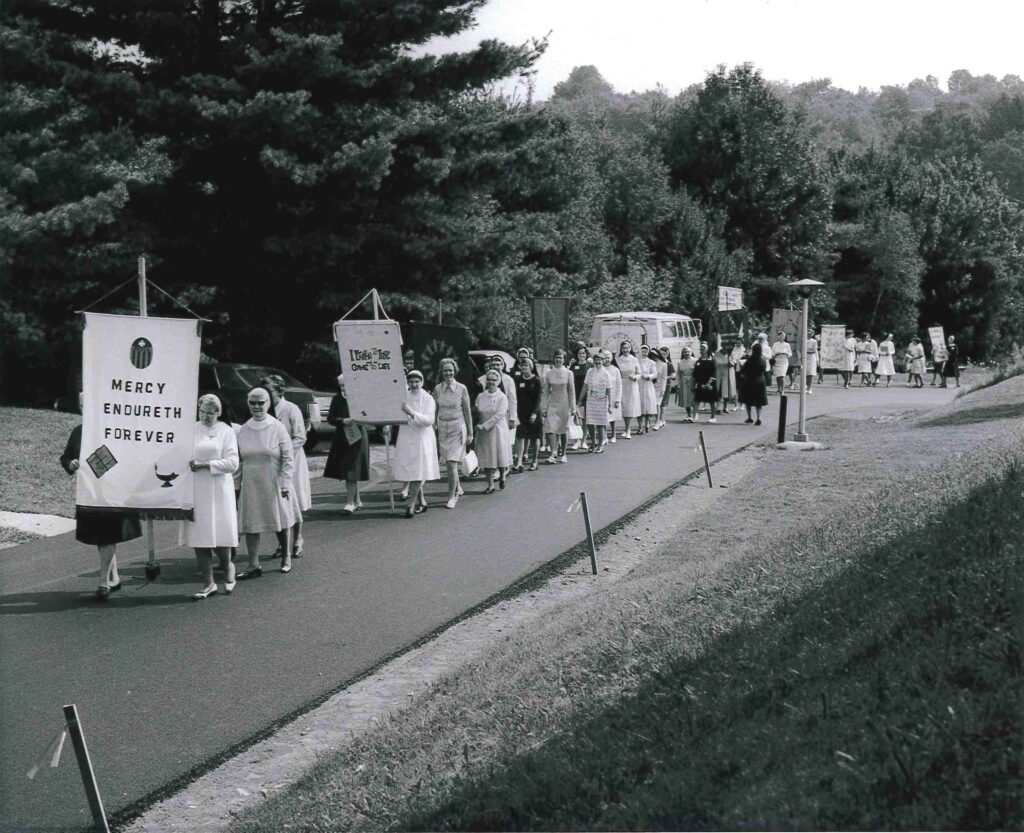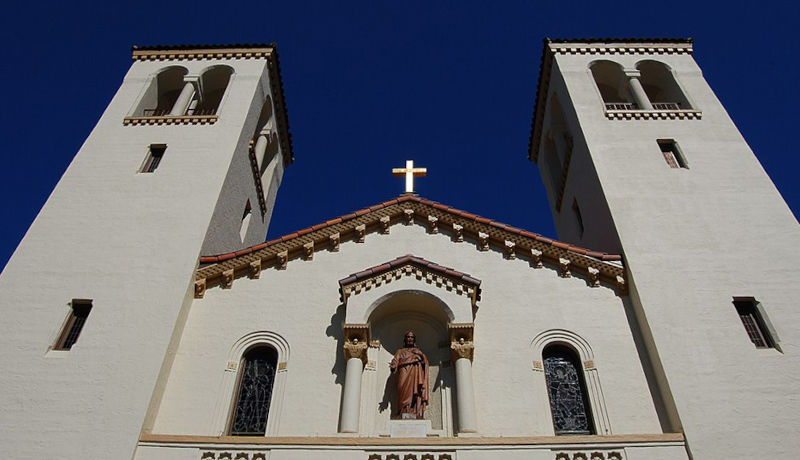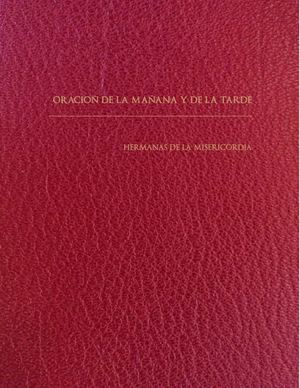Reflecting on more than 70 years of knowing Lorita—as a schoolmate, fellow Sister of Mercy, and friend, I struggled to know what to say today in this reflection. Though I was especially close to her during the last years of her life, I was keenly aware that these years were deeply painful for her and not typical of the Lorita most of us knew before 2015. Lorita herself chose the readings for her funeral Mass a number of years ago but didn’t share with me any other desires for this celebration of her life. At moments like this, I return to the motto on my profession ring, “Led by the Spirit,” and ask the Spirit for guidance to help me find the right things to say. And here is how the Spirit answered my request.
Lorita and I both loved poems that expressed a spiritual truth or value in beautiful, simple, or creative ways. And, as I was looking through a folder of Lorita’s last week, I found words from two poems that spoke to me both of Lorita herself and of the readings she chose for today’s Mass. So let me share with you my thoughts about the poems and the readings.
Trees and wooded places have always been special for Lorita. I suppose for us Burlingame Mercy sisters, who spent our first years in the community on these forty acres, trees will always be special. Lorita had a special interest in the two big redwood trees outside the window of our Novitiate community room, (now the Mercy Center Bookstore) and watched them grow taller over the years. She admired their strength and beauty. She chose to spend the 25th anniversary of her profession, February 22, 1986, with her local community at Marywood Retreat House in a forest area near Santa Cruz. The memory book she made of that day had as many pictures of trees in it as it had pictures of people! And in the short article I wrote for her Golden Jubilee in 2011, with Lorita’s oversight and approval, of course, we quoted this line from “The Mercy of God,” a much-loved poem by Jessica Powers: “I walked out of myself and went into the woods of God’s mercy, and here I abide.”
In the short but profound Gospel we just heard, Jesus is inviting us to come to him, to learn from him—not abstract doctrines or threatening commands—but rather to learn, of all things, how to rest! We will also learn—not how to exert power or control over others—but rather how to be meek and humble, that is, grounded in our human, earthly reality. How like Lorita to choose this Gospel that sets our lives, with their inevitable burdens, labors, and hardships, in such a loving, tender and sensitive invitation and image of God.
Jessica Powers’ poem goes on to describe the woods of God’s mercy as a place of rest in and with God. She says:
“There is greenness and calmness and coolness,
a soft leafy covering from judgment of sun overhead,
and the hush of His peace, and the moss of His mercy to tread.
I have naught but my will seeking God;
even love burning in me is a fragment of infinite loving
and never my own.”
The first reading from Philippians also speaks of perhaps a starker lesson than what we heard in the Gospel. We are called to be like Jesus in his total emptying of self to take on our humanity and live, suffer and die as all human beings must. In this total surrender Jesus’ Father, his Abba, glorified him as an example for us to both honor and imitate. We too are called to let go, to empty ourselves of any illusion we might have about our ability to control every aspect of our life or to escape its hardships.
Lorita knew those moments of letting go, darkness, and abandonment in her life. I believe that the mysterious depression in these last several years was for her a time of profound and painful letting go. Another such time was when she had a mastectomy in October of 1999. In a letter to the community following that surgery, she wrote, “I have been overwhelmed by an outpouring of healing love in mercy.” She goes on to say, “This quote from the poet Rumi which I discovered several weeks ago, sums up a piece of my experience.” And she quotes the poem: “Don’t turn your head. Keep looking at the bandaged place. That’s where the light enters you. And don’t believe for a moment that you are healing yourself.”
I think Lorita was called to a deeper understanding and acceptance of the interplay between strength and weakness in our human condition, of the Divine light and grace that can be found even in our woundedness and imperfection. Such learning, if we are honest, is the work of a lifetime. Or, I wonder, is it something we only fully understand in the clearer light of eternity?
Finally, another poet who had a significant role in Lorita’s life was a Jesuit priest, Gerard Manley Hopkins. In 1970 Lorita wrote about him in her Master’s Degree thesis, A Poet of Faith in a World of Doubt. At the end of her thesis, she writes words about Hopkins and his poetry which I think can also be applied to Lorita and her perception of the Divine in the world. Here is my version of these words applied to her: “We could say Lorita’s life and ministry gave to others a new way of looking at reality. For her the world was penetrated with the Divine…[and] grace gradually came to be seen as that power which infused and transformed all reality.” Let me mention a few lines from Hopkins’ poems that I believe Lorita understood well and which grounded her spirituality.
“There lives the dearest freshness deep down things…”
“For Christ plays in ten thousand places, lovely in limbs and lovely in eyes not His…”
“I say that we are wound with Mercy round and round as if with air…”
I conclude these reflections with words from Jessica Powers’ poem “The Mercy of God.” I wish that if Lorita could have sent us a message of comfort after she died, it would simply be these words, slightly adapted, from that poem: “I walked out of myself and went into the woods of God’s mercy, and here I abide… And I feel anxious or fear God no more; I go forward to wander forever in a wilderness of His infinite mercy alone.” Lorita, may you indeed wander, free at last, in peace and joy and playfulness. We send you our love and gratitude for all that you shared with us.


